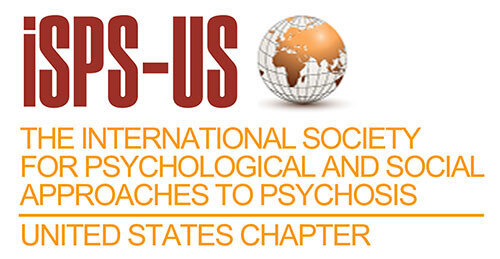How to Work with People Experiencing Psychosis
Are you looking for new ways to understand and support people who experience psychosis? Whether you’re a clinician, peer supporter, family member, or someone with lived experience, many of us are searching for approaches that go beyond diagnosis: approaches that foster connection, trust, and recovery.

Moving Beyond the Medical Model
Traditional systems often focus narrowly on managing symptoms or reducing distress through medication. While medication can be helpful for some, this one-size-fits-all approach can overlook the personal and social meaning behind psychosis. Experiences like hearing voices, having unusual beliefs, or feeling disconnected from reality often arise in the context of trauma, loss, identity struggles, or systemic oppression.
Understanding this broader context opens the door to healing relationships and more compassionate care.
Tips for Working with People Experiencing Psychosis
- Listen with curiosity, not fear.
Approach experiences of voices, visions, or unusual beliefs as meaningful rather than pathological by default. Ask open-ended questions like, “What do you think this experience might be trying to tell you?” or “When did it first start, and what was happening in your life then?” Listening without rushing to interpretation builds trust and helps people feel safe to explore their own understanding. - Acknowledge multiple realities.
Psychosis can involve experiences or beliefs that differ from shared consensus reality—but those experiences are still real in their impact. You don’t need to agree with someone’s interpretation to validate their emotions, needs, or suffering. A stance of respect and curiosity—“That sounds frightening” or “What does that mean to you?”—opens space for genuine dialogue. - Be transparent and collaborative.
Power imbalances are deeply ingrained in psychiatric systems. Counteract them by involving people in every decision about their care. Share information openly, invite feedback, and respect the person’s right to full informed consent. Collaboration isn’t just ethical—it strengthens the therapeutic relationship and supports autonomy. - Honor culture and context.
What’s called “psychosis” may carry different meanings across cultures and histories. Some may understand voices as ancestral, spiritual, or creative. Others may see them as connected to trauma, discrimination, or social isolation. Recognizing this diversity helps prevent pathologizing and opens access to culturally relevant and spiritually sensitive supports. - Stay with the relationship.
Healing often begins not through techniques but through presence. When others have withdrawn or labeled someone as “treatment-resistant,” consistency and compassion can be transformative. Show that you’re not giving up—small gestures of respect and reliability communicate safety and belonging. - Support agency and self-determination.
Invite people to take the lead in defining their goals and what recovery means to them. Encourage participation in decisions about medication, therapy, and social supports. Recovery is not about conformity but about finding one’s own path to meaning and connection. - Address social and structural realities.
Psychosis doesn’t exist in a vacuum. Poverty, racism, trauma, and exclusion can all shape distress. Advocating for housing, social connection, and dignity is as important as any clinical intervention. Supporting change in systems can be a profound act of care.
Why This Matters: Eleanor's Story
I would set boundaries for the voices and try to interact with them in a way that was assertive yet respectful, establishing a slow process of communication and collaboration in which we could learn to work together and support one another. Throughout all of this, what I would ultimately realize was that each voice was closely related to aspects of myself, and that each of them carried overwhelming emotions that I'd never had an opportunity to process or resolve—memories of sexual trauma and abuse, of anger, shame, guilt, low self-worth. The voices took the place of this pain and gave words to it, and possibly one of the greatest revelations was when I realized that the most hostile and aggressive voices actually represented the parts of me that had been hurt most profoundly, and as such, it was these voices that needed to be shown the greatest compassion and care.
It was armed with this knowledge that ultimately I would gather together my shattered self, each fragment represented by a different voice, gradually withdraw from all my medication, and return to psychiatry, only this time from the other side. Ten years after the voice first came, I finally graduated, this time with the highest degree in psychology the university had ever given, and one year later, the highest masters—which, shall we say, isn’t bad for a madwoman!" - Eleanor Longdon
Approaches that Support Dialogue and Understanding
At ISPS-US, we promote pluralism in understanding—recognizing that there are many ways to make sense of psychosis. Some of the most transformative approaches include:
- Open Dialogue: A network-based approach emphasizing transparency, collaboration, and shared meaning-making. Conversations include the person, their family, and community in every step of care.
- Hearing Voices Movement: Encourages exploration of voices as meaningful experiences, not just symptoms to eliminate.
- Trauma-Informed and Culturally Grounded Care: Acknowledges how histories of trauma, discrimination, or displacement can shape experiences of distress.
- Peer Support and Lived Experience Leadership: Builds hope and connection through authentic, mutual relationships.
In addition, a range of psychotherapies and creative modalities have shown promise in supporting people experiencing psychosis:
- Psychodynamic Therapy: Focuses on understanding the emotional and relational roots of distress, often giving space for unconscious meaning and early life experiences.
- CBTp (Cognitive Behavioral Therapy for Psychosis): Helps individuals make sense of and respond differently to voices, beliefs, and difficult experiences through the exploration of cognitions and behavior.
- Compassion Focused Therapy: Cultivates self-compassion and reduces shame, which can be central to healing and recovery.
- Art and Creative Therapies: Use creative expression to explore inner experience and communicate beyond words.
- Occupational Therapy: Supports engagement in meaningful activities and rebuilding a sense of purpose, identity, and community participation.
Learn More
ISPS-US offers ongoing education and dialogue focused on redefining psychosis in more humane, socially aware, and person-centered ways. We center the voices of those with lived experience, foster pluralistic understandings, and highlight transformative advocacy and clinical practices that challenge conventional approaches and support meaningful change.
Example
Explore how dialogue-based approaches can transform experiences of hearing voices in our recorded webinar Talking With Voices with Dirk Corstens, MD, and Alison Branitsky. This presentation introduces the Talking With Voices approach, where practitioners engage compassionately and directly with voices to uncover meaning, reduce distress, and foster healing relationships.
View our upcoming webinars.
You can be part of the movement for redefining psychosis and "serious mental illness"
ISPS-US is a community of care providers, people with lived experience, family members, and advocates. Join us! Keep up to date with ISPS-US’s work, education and our Calls for Action by joining our mailing list. Be part of a movement of change-makers dedicated to redefining how we understand and respond to experiences labeled as “psychosis”—working toward systems that recognize social context, honor lived experience, and support full participation, connection, and healing.
